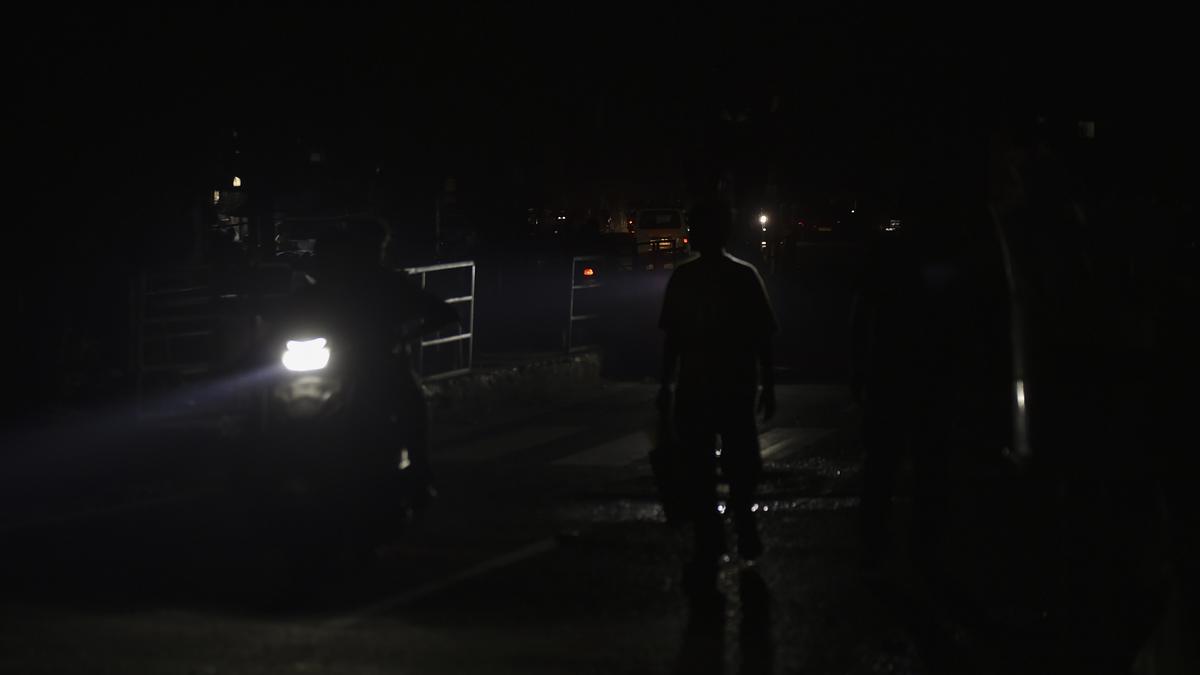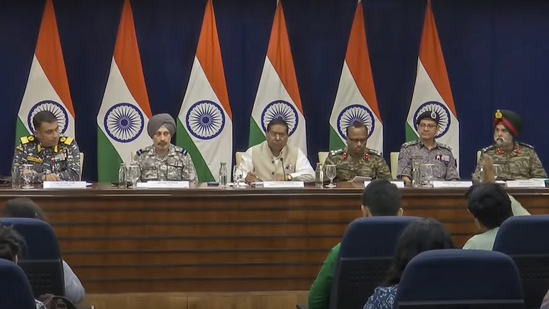Drone Threat Escalates Tensions in Jammu Region
Tensions escalated across northern India on Friday night as drone activity over Jammu, Samba, and Pathankot prompted emergency responses, including blackouts and sirens. This follows Thursday night’s missile interceptions by Indian defence systems, raising concerns of a deliberate pattern in cross-border provocations.
According to defence officials, drones were sighted in key security zones in Jammu, Samba, and Pathankot. Air defence units responded swiftly, engaging aerial targets while blackout protocols were enforced across urban and military-sensitive areas.
The situation marks a dangerous escalation along the border, combining aerial surveillance threats with conventional ceasefire violations in other sectors.
Sirens and Explosions: Ground Reports from Affected Cities
Residents of Jammu were first alerted around 8:30 PM when air raid sirens echoed throughout the city, followed by reports of loud explosions. Authorities promptly cut power in various districts, enforcing a complete blackout to reduce visibility for potential aerial threats.
Similar scenes unfolded in the Samba and Pathankot regions, both close to the Pakistan border. Residents described hearing low-flying aircraft and successive loud booms through the night.
In a social media post, J&K Chief Minister Omar Abdullah wrote:
“Blackout in Jammu now. Sirens can be heard across the city. Intermittent sounds of blasts, probably heavy artillery, can now be heard from where I am.”
Blackouts were also reported in Srinagar, particularly near the Badamibagh cantonment, adding to the regional unease. These measures were part of coordinated security drills designed to obscure visual targeting during aerial threats.
Cross-Border Fire Reported in Rajouri and Poonch
Even as the drone threat dominated headlines, the Line of Control (LoC) remained active. Defence spokespersons confirmed that Pakistani troops engaged in ceasefire violations in the Rajouri and Poonch sectors, firing at Indian forward posts.
The Indian Army retaliated with what it described as “measured and effective response.” While no casualties were immediately reported, the simultaneous drone operations and ground firing point toward a broader destabilization attempt.
Since the 2021 reaffirmation of the ceasefire agreement, cross-border violations have largely been sporadic. However, recent weeks have seen a spike in coordinated actions involving drones, cross-border firing, and attempts at infiltration.
Strategic Importance of the Targeted Regions
Jammu, Samba, and Pathankot are not only geographically close to the international border but also hold immense strategic value. Pathankot houses a major Indian Air Force base and has historically been a target of high-profile terror operations.
Drones entering Indian airspace in these sectors pose dual threats—surveillance and potential payload delivery. Security agencies have previously expressed concerns that drone technology could be used to transport explosives or gather intelligence on military movements.
Friday night’s interception and blackout response show heightened readiness by Indian forces but also underscore the evolving tactics of adversarial forces.
Local Reactions: Fear and Resilience
For civilians, the events triggered anxiety and fear. A Jammu resident recounted the moment the power went out:
“The blackout came without warning. Then we heard explosions. My children were terrified. This hasn’t happened in years.”
Schools in some affected areas are reportedly under review for closure, and security advisories have been issued urging people to remain indoors and avoid speculation on social media.
Despite the fear, there’s a strong sense of resilience among locals, many of whom have grown used to living on the edge of conflict. Community leaders have asked for calm and trust in the armed forces.
India’s Response: Heightened Security Measures
Defence experts note that India’s air defence system—including drone jammers, radar-based interception, and real-time coordination between the Army and Air Force—is being tested under real-world pressure.
While missile interceptions on Thursday showcased capability, the persistent use of drones indicates the need for wider technological surveillance coverage and night-specific drone detection.
So far, the government has not issued a formal statement on Pakistan’s involvement in Friday’s incidents. However, intelligence sources reportedly believe the operations are being coordinated by non-state actors with cross-border support.
India is likely to raise the issue through diplomatic channels while maintaining a high-alert status in border-adjacent areas.
Prepared but Cautious
The situation in Jammu, Samba, and Pathankot remains tense, with military engagement protocols continuing overnight. While the immediate drone threat appears to have been neutralized, the recurrence of missile and drone incidents points to a longer-term pattern of aerial harassment and hybrid warfare tactics.
India’s defence forces have demonstrated preparedness, but the region’s fragile calm continues to be tested.
Residents and local authorities now await further guidance as the security apparatus remains on full alert.










